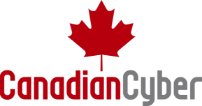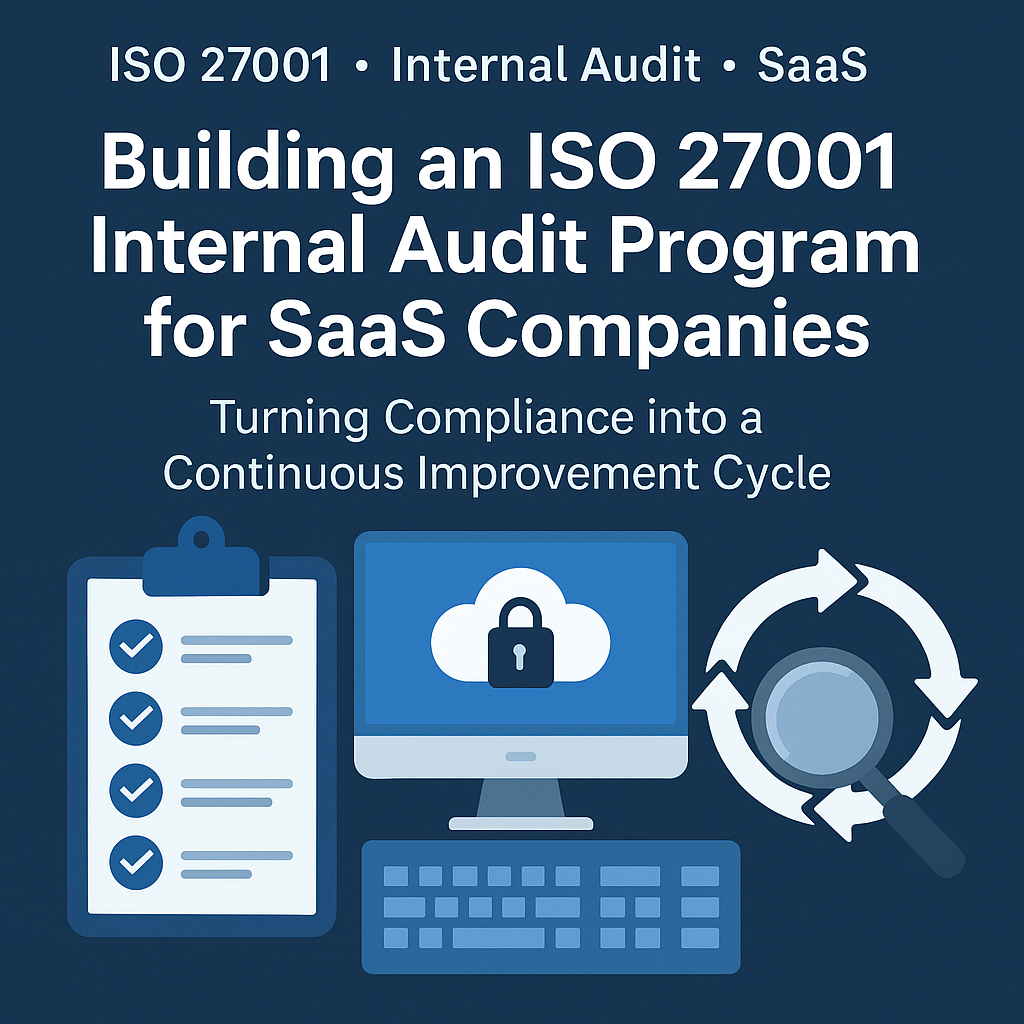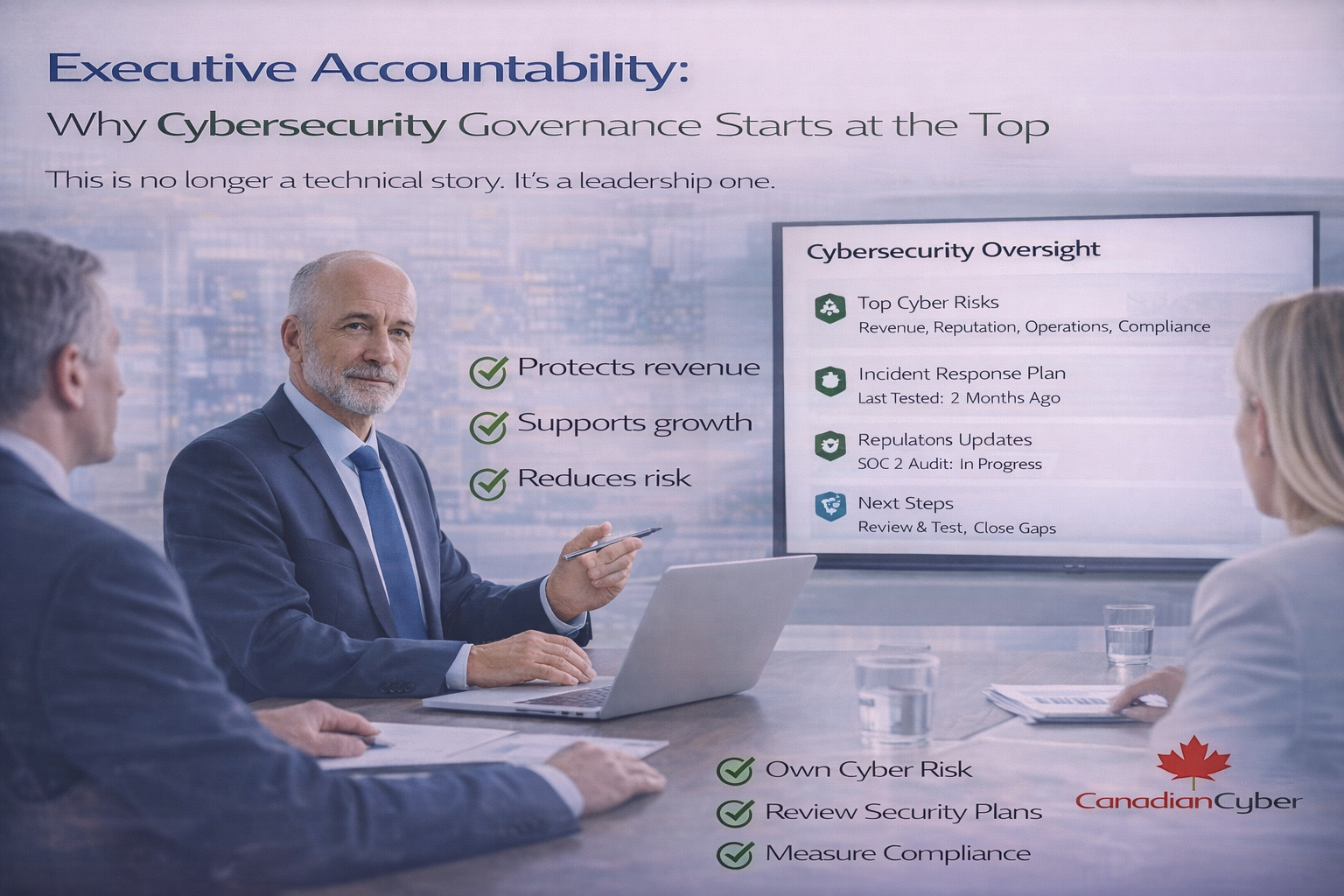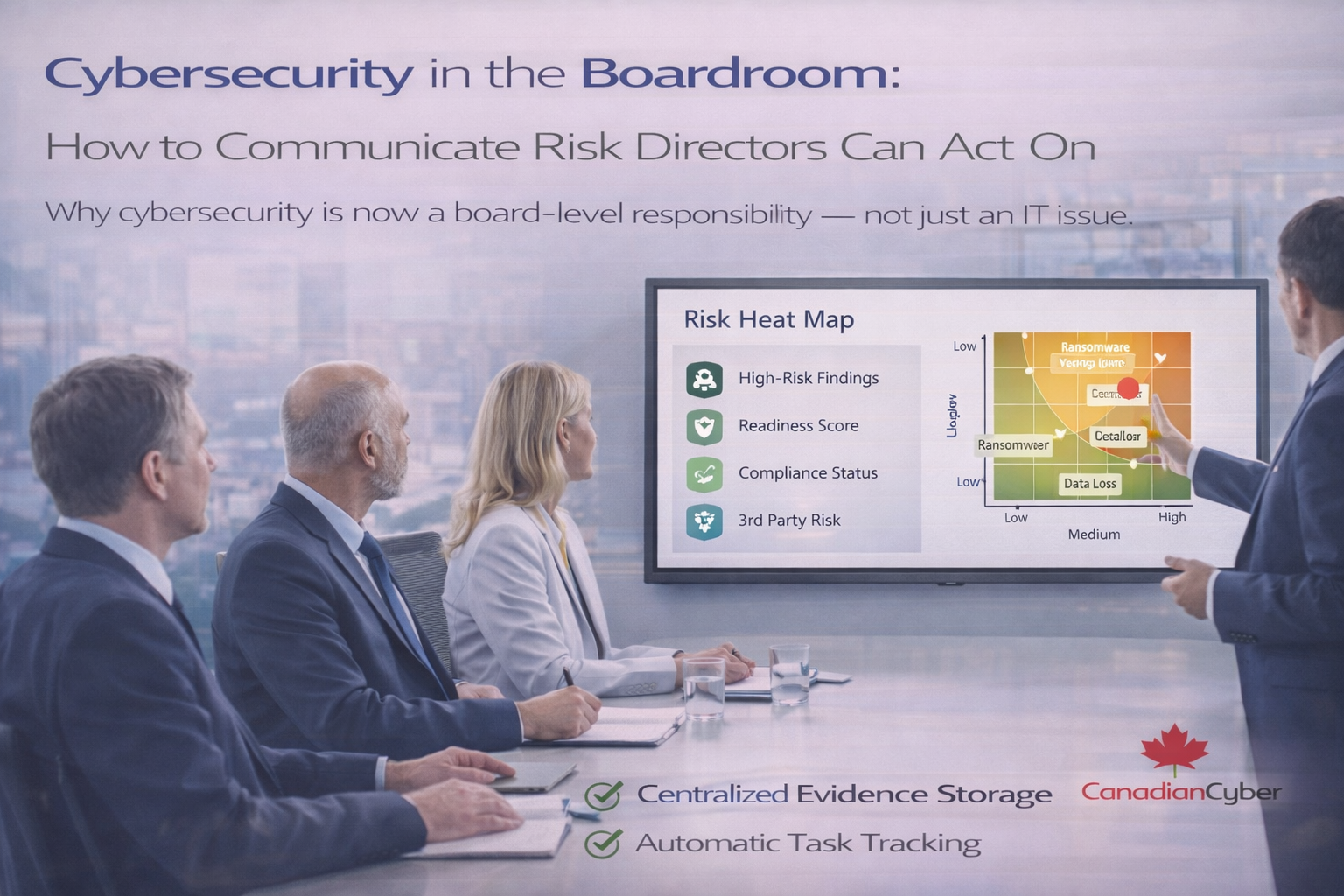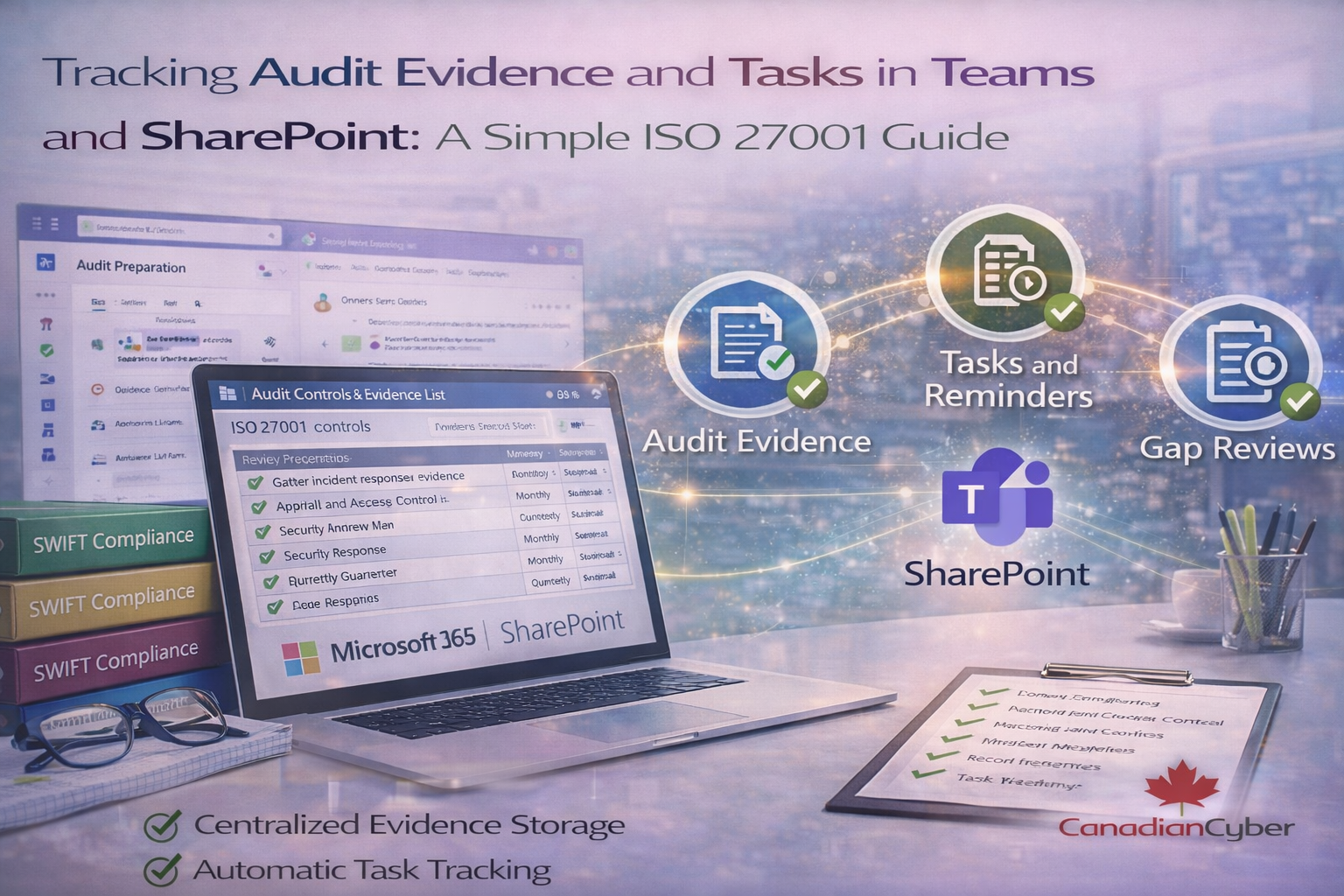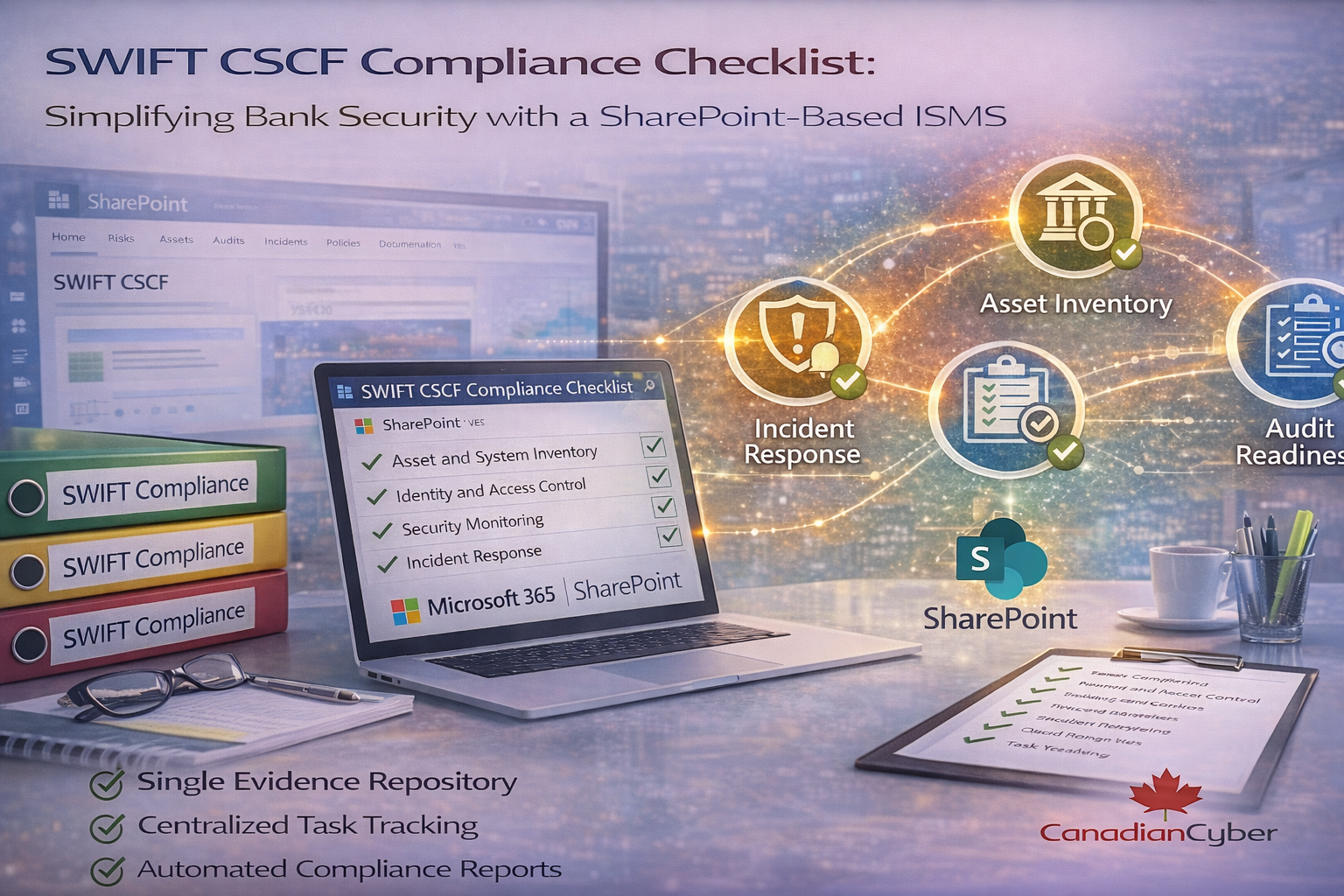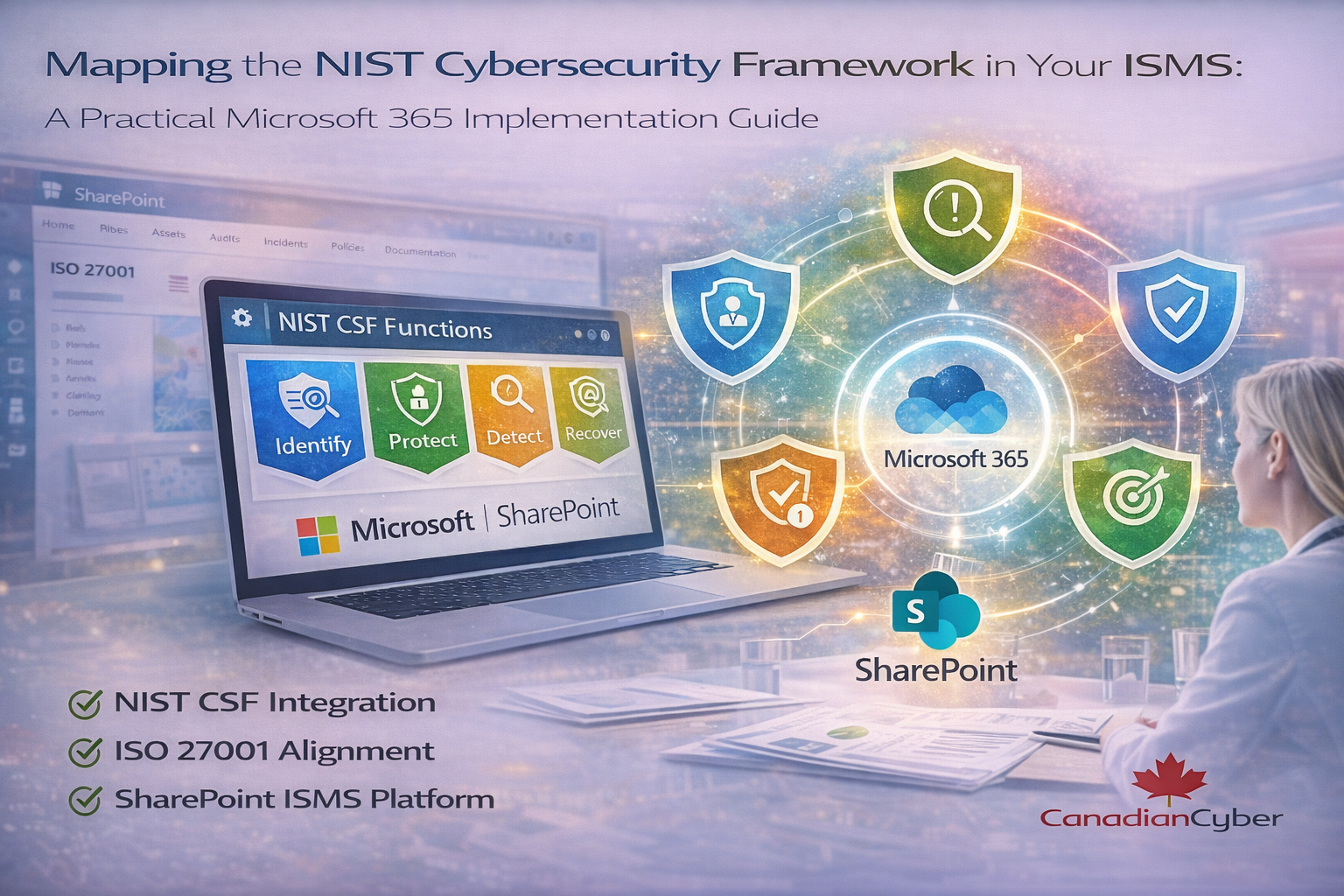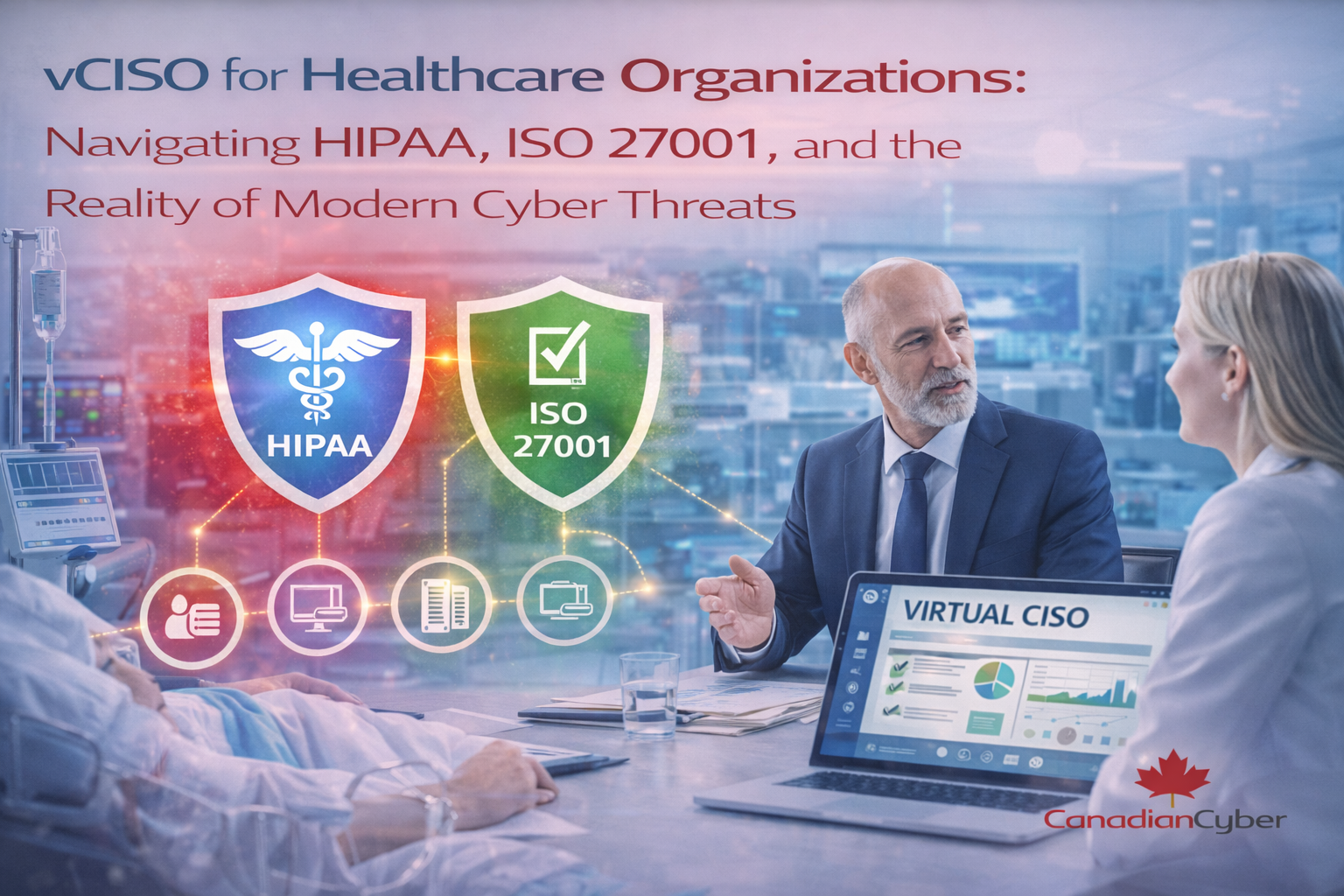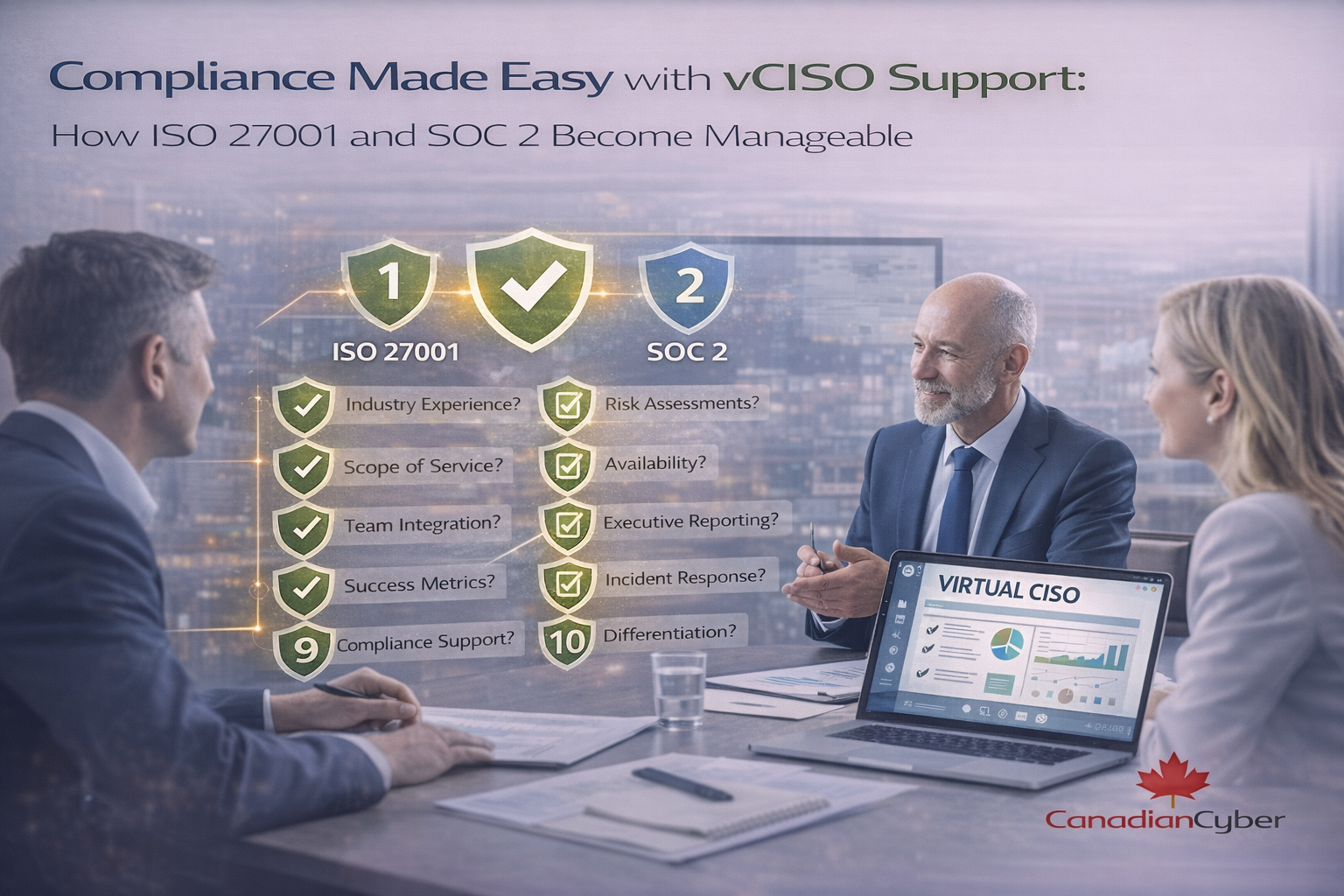ISO 27001 • Internal Audit • SaaS
Building an ISO 27001 Internal Audit Program for SaaS Companies
Turning Compliance into a Continuous Improvement Cycle
For SaaS providers, your application is your product and your product runs on trust. Clients rely on your platform to keep their data secure, available, and private. But as your codebase, infrastructure, and integrations grow, maintaining that trust takes more than firewalls and encryption it requires evidence.
That’s where your Internal Audit Program comes in.
Under ISO/IEC 27001, internal audits are the heartbeat of your Information Security Management System (ISMS). They prove that your controls aren’t just documented they’re working. Audits verify security performance, uncover blind spots, and ensure every team from DevOps to customer success stays accountable.
At Canadian Cyber, our Internal Audit Program & Reports Template (CC-ISMS-008) helps SaaS companies operationalize this process. It converts ISO 27001’s abstract requirements into a practical, trackable cycle of verification, correction, and improvement tailored for the fast-moving world of software.
Why Internal Audits Are Critical for SaaS Providers
- New code merges, API updates, and feature rollouts can introduce vulnerabilities.
- Multi-tenant cloud environments require rigorous isolation and monitoring.
- External frameworks like SOC 2, GDPR, or PIPEDA demand continuous assurance.
An internal audit program helps you stay ahead by:
- Ensuring your ISO 27001 controls function as intended
- Detecting weaknesses in your DevOps, CI/CD, and access processes
- Demonstrating compliance to clients, regulators, and partners
- Feeding audit insights back into your security roadmap
In short: internal audits turn compliance into continuous validation a living feedback loop that strengthens every part of your SaaS ecosystem.
How to Build an ISO 27001-Ready Internal Audit Program
Our CC-ISMS-008 template provides a repeatable, ISO-aligned structure that covers planning and scheduling, conducting objective reviews, documenting findings and corrective actions, and feeding results into management reviews.
Here’s what that looks like when applied in a real SaaS environment using our fictitious company, CloudNova Software Inc.
🧾 Sample Internal Audit Program
(Based on the Canadian Cyber CC-ISMS-008 Template)
1. Purpose
This Internal Audit Program defines the process for evaluating CloudNova’s Information Security Management System (ISMS) to ensure continuous compliance with ISO/IEC 27001:2022, improve control effectiveness, and validate that cloud, product, and operational security meet defined standards.
2. Scope
Covers all areas under CloudNova’s ISMS, including:
- Cloud infrastructure (AWS, Azure)
- SaaS platform and APIs
- Development pipelines (CI/CD)
- Production operations and monitoring systems
- Corporate IT and third-party SaaS services
All Annex A control domains are audited annually; critical areas like code deployment, access control, and vulnerability management may undergo semi-annual checks.
3. References
| Reference | Description |
|---|---|
| CC-ISMS-002 | Information Security Policy |
| CC-ISMS-005 | Risk Treatment Process & Plan |
| CC-ISMS-006 | Statement of Applicability |
| CC-ISMS-009 | Management Review |
| ISO/IEC 27001:2022 — Clauses 9.2 & 10.2 | Internal Audit & Improvement |
| PIPEDA & GDPR | Privacy Regulations |
4. Roles and Responsibilities
| Role | Name | Responsibility |
|---|---|---|
| CEO | Laura Kim | Approves the audit schedule and ensures resourcing. |
| ISMS Manager | David Singh | Maintains the audit program, assigns auditors, and tracks follow-ups. |
| Lead Auditor | — | Performs impartial audits, gathers evidence, and issues reports. |
| CTO | Sarah Nguyen | Implements corrective actions for DevOps, access, or infrastructure controls. |
| All Employees | — | Cooperate with auditors and adhere to information security policies. |
5. Audit Policy and Methodology
Frequency & Audit Schedule Matrix
CloudNova maintains an Annual Audit Schedule Matrix listing each functional area (e.g., Access Management, DevOps Security, Cloud Backup, Incident Response) with target months, assigned auditors, and evidence requirements.
Audit Checklists & Sampling
Auditors use standardized ISO 27001 checklists aligned with CloudNova’s Statement of Applicability. Reviews include representative sampling of access control lists, MFA logs, pipeline permissions, vulnerability scans, backup tests, and key rotation records.
Independence & Objectivity
Auditors remain impartial; no one may audit their own area of responsibility.
Nonconformity Classification
- Major Nonconformity: A systemic or repeated failure of control.
- Minor Nonconformity: An isolated issue not impacting control integrity.
- Observation / OFI: Opportunity for Improvement.
Reporting & Records
Each audit produces an Internal Audit Report detailing scope, findings, and recommendations. Results are logged in the Audit Findings Register, tracking owners, deadlines, and closure verification.
Corrective Action Verification
All corrective actions are validated for effectiveness before closure by the ISMS Manager. Auditor competence is maintained with yearly ISO training and evaluations.
6. Internal Audit Procedure
- Step 1 — Plan: The ISMS Manager prepares an Audit Plan specifying objectives, clauses, and controls to review.
- Step 2 — Execute: Auditors interview teams and review evidence (e.g., AWS GuardDuty alerts, GitHub audit logs, SIEM events).
- Step 3 — Report: Findings are classified (Major, Minor, OFI) with evidence referenced in the Audit Report Form.
- Step 4 — Corrective Action: Each finding has an owner; remediation is tracked until verified.
- Step 5 — Management Review: Results feed into Management Review (CC-ISMS-009) for trend analysis and continuous improvement.
7. Compliance Mapping
- A.5.35 — Independent Review of Information Security
- A.5.36 — Compliance with Policies and Standards
- A.5.37 — Documented Operating Procedures
Evidence schedules, reports, findings, and competence records is securely retained for six years for audit readiness.
8. Continuous Improvement
CloudNova uses internal audit results to refine its ISMS and development lifecycle. Planned enhancements include expanding coverage to all 93 Annex A controls, integrating automated evidence collection from Jira/CI/CD, and implementing a GRC dashboard for real-time tracking.
Approved by: Laura Kim, CEO
Date: October 2025
Why This Example Works
- Validates cloud security configurations
- Confirms access management effectiveness
- Improves DevOps and deployment integrity
- Strengthens incident response and backup resilience
How Canadian Cyber Helps SaaS Companies Achieve ISO 27001 Compliance
- Internal Audit Program Templates (CC-ISMS-008) for SaaS environments
- Custom Audit Schedules, Checklists, and Reports
- Pre-Certification Audit Readiness Assessments
- vCISO Services for ongoing ISO oversight
- Automated Compliance Monitoring across cloud and DevOps systems
We make ISO 27001 auditing seamless integrating security validation into your existing workflows.
Ready to Build Your ISO 27001-Compliant Internal Audit Program?
Your clients trust you with their data. Let’s make sure you can prove that trust every day.
Connect with Canadian Cyber
Canadian Cyber Helping SaaS Companies Build Trust Through Continuous Audit and Compliance. Because in the cloud, security is not a checkpoint it’s a cycle.
